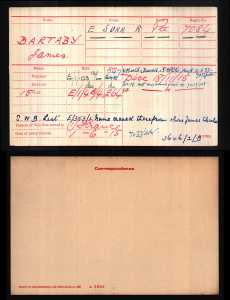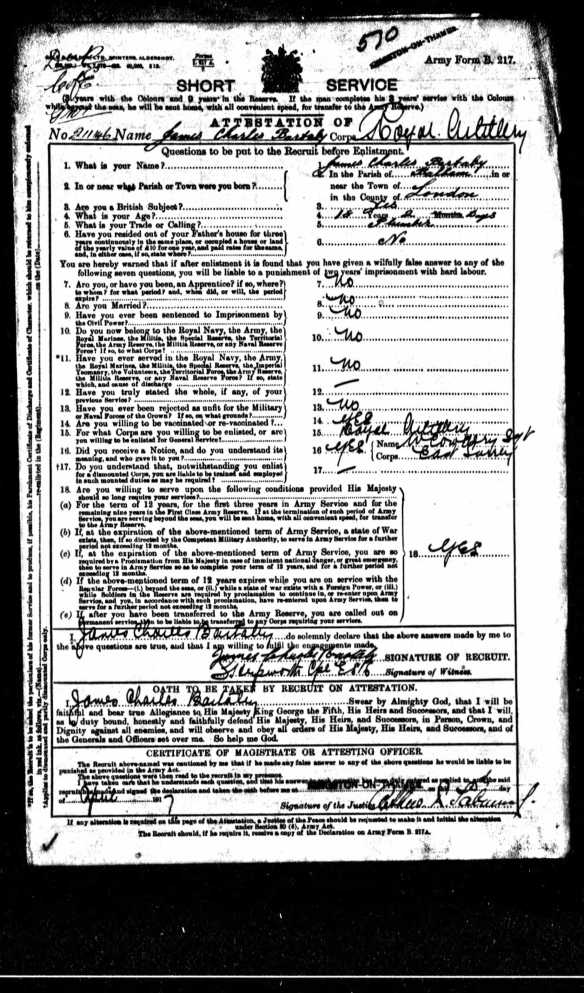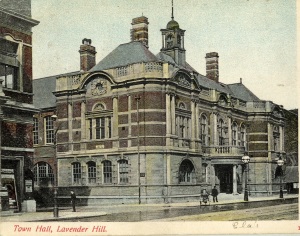A look at the edition of the South London Press on 30th June 1916 reveals the local papers trying to cling on to a vestige of hope as the war reaches nearly two years’ duration. As its name implies, the South London Press covers a broader area that just Wandsworth (it seems particularly keen on Southwark) and at Wandsworth Heritage Service we hold more relevant local newspapers from this period to this borough. However, as the WW1 centenary approached and we began to notice an increase in visitors wanting to consult the local papers for reports of war casualties, it was a struggle to find any. A glance through the Tooting & Balham Gazette or the South Western Star during 1916 found it was business as usual, with lengthy descriptions of ‘pretty weddings’ and detailed reports of sporting events, but barely a mention of the ‘war to end all wars.’
By May of 1916 the South London Press who had been up to this point reporting on their front page any officers killed during warfare in a column entitled ‘In Memorium,’ decided to step up and list local people serving in the war of all ranks, reported dead or wounded. This is made possible by the Press Bureau’s identification of the area that the casualties’ next of kin belong to. In issuing this first list of local casualties the newspaper managed to find an optimistic point of view, which in hindsight is quite sobering in its naivety.

In the edition of 30th June 2016 the regular column ‘In Memorium’ includes a short biography of the recently killed Lieutenant Henry Cyril Dixon Kimber of the Royal Field Artillery. Born in Streatham he was the grandson of a former M.P. for Wandsworth, Sir Henry Kimber, and a fairly lengthy paragraph describes his family, University education and war record, including his part in the battle of Loos.

Compare this fitting tribute on page 3 of the newspaper with what is described as ‘detailed lists of South Londoners killed and wounded’ on page 5. Not even a full name is given in this ‘detailed list’, and the brevity of the individual entries feels familiar to us reading them now, accustomed as we are to the crowded lists of names on First World War memorials.

Indeed, the habit of only listing casualties’ initials and surnames has led to great difficulty in recent times when communities have tried to research the people listed on their local war memorials. An unusual surname can help with identification, but an E. Brown and E.L. Smith have so far eluded the Summerstown182 team.
Two things strike me when looking at this list of war casualties in the South London Press. Firstly, the reporter continues to try and comfort the contemporary reader and allay their alarm at the sight of such a list of names, as can be seen in their introduction to the column below.

I’m not sure the phrase ‘upwards of 60 per cent of those wounded are able to resume their places in the firing line’ was very comforting to those invalided out.
Secondly the juxtaposition of the war casualties with a column entitled: ‘Accidents and Fires in South London’ is interesting. This heralds the solemn reporting of a bizarre range of incidents described as ‘Many Happenings in Few Lines.’ These include a joiner, Alfred Palmer being knocked off his cycle outside Nine Elms station and a domestic servant named Annie Clarke being struck by a cricket ball near Clapham Common. The ‘Few Lines’ that describe these accidents are in fact more numerous and detailed than the supposed ‘detailed lists’ of war casualties alongside them. These unfortunate victims of local calamities are given their full name, age, address and occupation as well as details of the hospital they were taken to for treatment. The reader can probably picture and therefore empathise with the victims of these misfortunes much more easily than with the brief snapshot beside it of an unimaginable horror of war.
Further local reporting of war related matters reveals a faintly jolly sounding timetable for the 5th Battalion Wandsworth Volunteers (Headquarters: 123 Trinity Road, Upper Tooting). Regular battalion drills on Heathfield Ground and ‘trench work’ are very much the order of the day, but on Wednesday they get a break from drilling and are required to attend a fete and gala at Springfield War Hospital from 2pm til 9pm. The note at the end of the schedule reminding them of a camp that is to be arranged for three weeks in July and August completes the impression of activities more suited to boy scout troops.
A small paragraph at the bottom of page 3 really represents the local paper’s overall mission to inspire the local people with ideas of how they can help the war effort in their own way. The fact that the owner of the celebrated garden is not named nor the specific address given, leads one to wonder if it actually existed. If it did, I do hope they enjoyed eating their beans and didn’t miss their flowers too much.

The South London Press, Tooting & Balham Gazette & South Western Star are all available on microfilm (Wandsworth Heritage Service)
Commonwealth War Graves Commission have a record of Lieutenant Kimber here.
Picture of Sir Henry Kimber from Wandsworth Notes, vol. 2 (Wandsworth Heritage Service)



